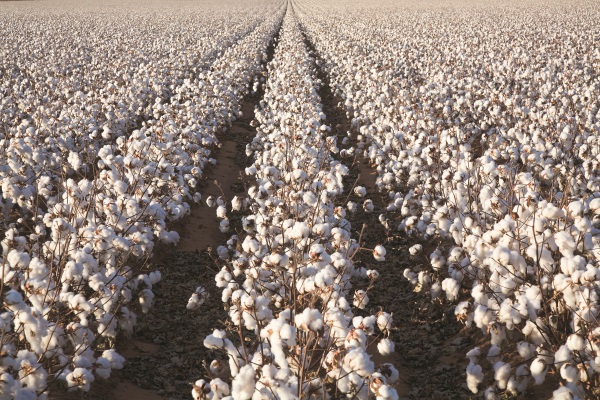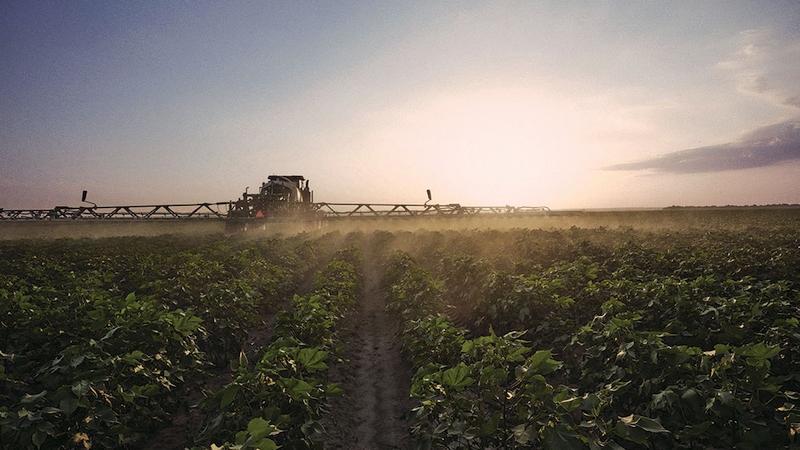Resistance Fighter

Situated in the middle of a quaint, old-fashioned town square in Tunica, MS, Justin Cariker’s office doesn’t look like a typical farmer’s office.
Outside a small crowd gathers to hear a local band play light music. Window shoppers walk up and down the sidewalk, enjoying an afternoon at the center of this tiny Delta town. Inside, the floors are carpeted, the desks are shiny and clean and the potted plants are a dead giveaway that the place has benefited from a woman’s touch.
Immediately it has the feel of a small town politician’s office, and that’s largely because it is. Cariker’s brother Chuck serves as the mayor of Tunica, and the two decided to conduct all their business from the same, comfortable office. But while things appear orderly and controlled inside, outside Cariker’s farm is dealing with the same scourge that nearly all the other farmers around him struggle with: glyphosate-resistant pigweed.
“That’s my problem. I have always put out residual on the farm. Even when Roundup came out and Roundup Flex, you know, you heard people say ‘just spray glyphosate, then again, then spray it again,’” says Cariker.
“I’ve always laid-by our cotton every year, and now the time has come when this pigweed has become a problem, even for my place. I can only imagine the people who have never put a residual out and the type of problems they’re having.”
Cariker isn’t alone in his battle with glyphosate resistance. By most estimates, nearly everyone in Tunica County is battling the outbreak. Cariker is dealing with it as best he can – fight hard against it now, and be prepared for changes in the future.
Number Crunch
Cariker’s operation – named Maud Farms after a local community – has by-and-large stayed loyal to cotton, even through some of the most difficult pricing years in recent memory. Of his 5,500 acres, Cariker designated 2,500 to cotton last year, when prices were at their worst. They planted 2,500 acres of cotton this season, as well. Though the operation has seen as much as 4,400 acres of cotton in the past, Maud Farms is still clearly devoted to the crop.
“We’re cotton folks. We’ve got pickers and module builders. We’ve got stock in a gin. Cotton has made us some money. Nine dollar beans to me, at 40 bushels an acre, that’s not a lot of money after you’ve paid your rent and your expense and your overhead. We like the cotton better,” says Justin.
But a combination of low cotton prices, $10 beans and the need for new chemistry caused Cariker to plant less cotton than he would’ve liked this year. The increased presence of resistant pigweed on the operation made the farmer take a second look at the herbicide options that crop rotation opened up, and has him toying with just how many of his acres he wants to move out of cotton and into alternative crops.
Cariker planted 500 acres to corn last year, a decision based on the herbicide options the crop affords.
“I’ve had one farm that I kept in corn for two years trying to get rid of the pigweed, and it worked. Last year we put out some atrazine, some Halex, some stuff that’s only labeled for corn. So you’re just throwing a whole different punch at the pigweed. And then of course the corn has been profitable too, so that made it a little better,” says Cariker.
Pulling Out All the Stops
While the rotation has worked on that particular patch of ground, Cariker says resistance is advancing on the rest of his operation. To combat it, he says, he’s taking a hard-line approach.
“On the whole 2,500 acres of cotton this year I went back and worked conventionally, the old-fashioned way. I sub-soiled it, I disked it, I put out a quart of Prowl, ran field cultivators, incorporated and bedded up just like we did in the ‘80s. I’ve still got pigweed coming through. And that was supposed to have been one of the things that would really help – incorporating Prowl. And I guess I’m just lucky we did,” he says, implying that the situation could be a lot worse.
To illustrate his point, Cariker takes a short drive around a nearby farm of his. Across a field, he spots a handful of foot-high pigweeds sprouting through recently-disked turnrows, above three-leaf cotton. The problem, he says, calls for some innovative thinking.
“Next year I’m going to have to make some drastic changes on some farms. Whether I go to Liberty Link and use Ignite, or I go and plant some milo or corn. But I’ve probably got 300 acres that are that bad, that they need some drastic measures,” says Cariker.
The decision to change up varieties is not one that Cariker takes lightly, although he says he’s always been high on Bayer CropScience’s options. On his farm this year, he’s planted ST 4498B2RF, ST 5458B2RF and FM 1740B2F. He also planted DP 0912 B2RF and DP 1034 B2RF. But a switch to Liberty Link varieties could be coming soon, he says, out of necessity.
Linked Up
“The reason I didn’t plant Liberty Link this year is being a little worried about the different chemistries on my own farm. Pretty much everything is Roundup Ready, and if you put some Liberty Link in there, you just have to be more cautious. On our own farm, we have to make sure my hi-boy driver doesn’t get in the wrong field and kill my own crop. But it’s something that can be done and will probably have to be done,” says Cariker.
He points to a neighbor’s field just across the turn road from his own.
“He called me at the beginning of the year and said, ‘I’m planting Liberty Link cotton over here,’ and I’ve got another neighbor who’s planting Liberty Link soybeans here. You know, that’s something that you want to tell your neighbor early on. And it has worked out well. We’ve just got to pay attention to the winds. Maybe you can’t spray that field today, but three days from now you can spray it.”
“It’s just going to require a little more intense management, I think,” he says.









